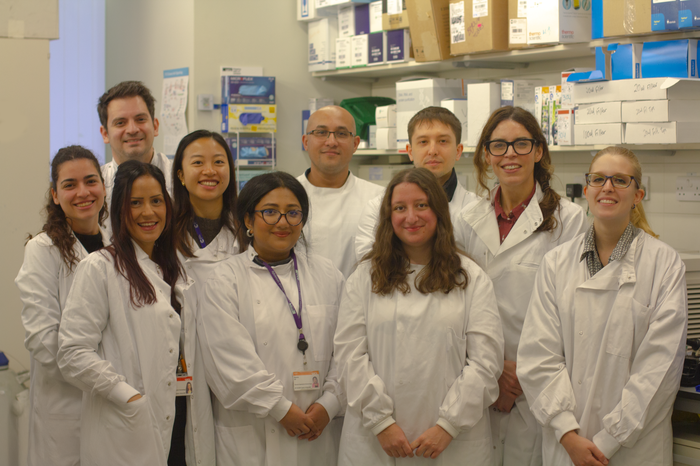Understanding why CAR-T cell therapy works for some people but doesn’t work for others
Whilst CAR-T cell is an effective treatment for some people with blood cancer, it doesn't work well for everyone. Dr Claire Roddie is trying to understand why this is to help make this treatment more effective.

Dr Claire Roddie and her team
The challenge
CAR-T cell therapy has greatly improved the way we treat some blood cancers. This treatment involves taking T-cells (blood cells that help to protect you from infection and disease) from someone with blood cancer, modifying them in a lab and then giving them back to the patient to seek out and destroy cancer cells. Whilst CAR-T therapy is an effective treatment for some people, it doesn't work for everyone. For those it does work for, the benefits are not always long lasting, and some people have severe side effects. More research is needed to develop this treatment to make it work better for more people, with fewer severe side effects.
The project
When someone receives CAR-T cells therapy, the specialised cells are supposed to stay in the blood for a long period of time, acting like a surveillance system, seeking out and destroying the cancer cells. Unfortunately, this is not the case for some people. Dr Claire Roddie and her team plan to study the proteins and genes in these cells so they can understand why CAR-T cells stay in some blood for a long time in some people but not in others. They hope to find a unique pattern in the cells of people who do well with this type of treatment. If they find a pattern, they want to try to add it to all CAR-T treatments so everyone can receive this benefit. They also plan to look for signs that might help them identify people who are more likely to get severe side effects.
The future
It’s hoped that this project could potentially help researchers understand how to make CAR-T therapy more effective, helping to reduce severe side effects experienced by some. Ultimately, their goal is to help make this treatment better, to create a better future for people with blood cancer.
